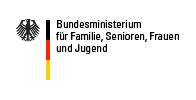Comment on European Institute for Gender Equality
The Foundation of the European Institute for Gender Equality
The Commission of the European Union made an offer based on a regulation of the European Parliament and Council to create a European Institute for Gender Equality.
The GenderCompetenceCentre appreciates the foundation of a European Institute for Gender Equality. For the formation of an independent Institute the following arguments are essential:
The GenderCompetenceCentre appreciates the foundation of a European Institute for Gender Equality. For the formation of an independent Institute the following arguments are essential:
- Equality for men and women is a fundamental right and a contractual fixed policy field – which is shown in 13 guidelines and about 200 verdicts of the European court.
- Despite a reduction of sex discrimination in several policy fields, gender equality has not yet reached a continuous realised practice in the EU-member states.
- The unequal development level of the EU-member states and the harmonised enhancements in terms of gender equality require a broad policy-mix.
- Equality and the implementation of Gender Mainstreaming (GM) are a cross sectional issue and cannot be covered through integration in just one policy field, like fundamental rights, labour market or education. Equality affairs are so interdependent that a distribution to several professional areas seem ineffective.
- Other institutes could feel released from their genuine responsibility in equality affairs. Hence it should be the duty of the European Institute for Gender Equality to support the existing work of national institutes, pass on question to other professional departments and encourage the strategy of Gender Mainstreaming.
- The autonomy of a foundation of an institute could be abused as a “alibi-institution”. Therefore mandate and resources have to be clearly arranged.
- A closeness to science is necessary for an implementation of GM that ensures quality. For a differentiated support of different actors the independence from political boards and administration is important. Thus, the role of the planned management board of the European Institute for Gender Equality (article 10 of the enactment) should be conciliated with the independence and autonomy codified in article 5.
- Experiences of the GenderCompetenceCentre with the implementation of GM show e.g. a growing demand and necessity for continuous information, especially for comparable (international) data. This is also evinced by other German actors in the field, e.g. G/I/S/A. Comparable data is urgently needed for a lasting and sustainable realisation of GM. Therefore it should be the challenge of the new founded Equality Institute to improve the comparability, objectivity and reliability of data on the European level. In terms of GM it should be proved, if the development of a standardised system for data analysis and collection should be accomplished through an appropriate centre like Eurostat. It would be reasonable, that the Equality Institute offers consulting on data collection and analysis. Certainly it would make sense, that the Equality Institute receives the possibility to collect data itself, but also it has to have the right to advise other (professional appropriate) Institutions which data should be collected.
erstellt von Administrator
—
zuletzt verändert:
02.01.2010 20:07





